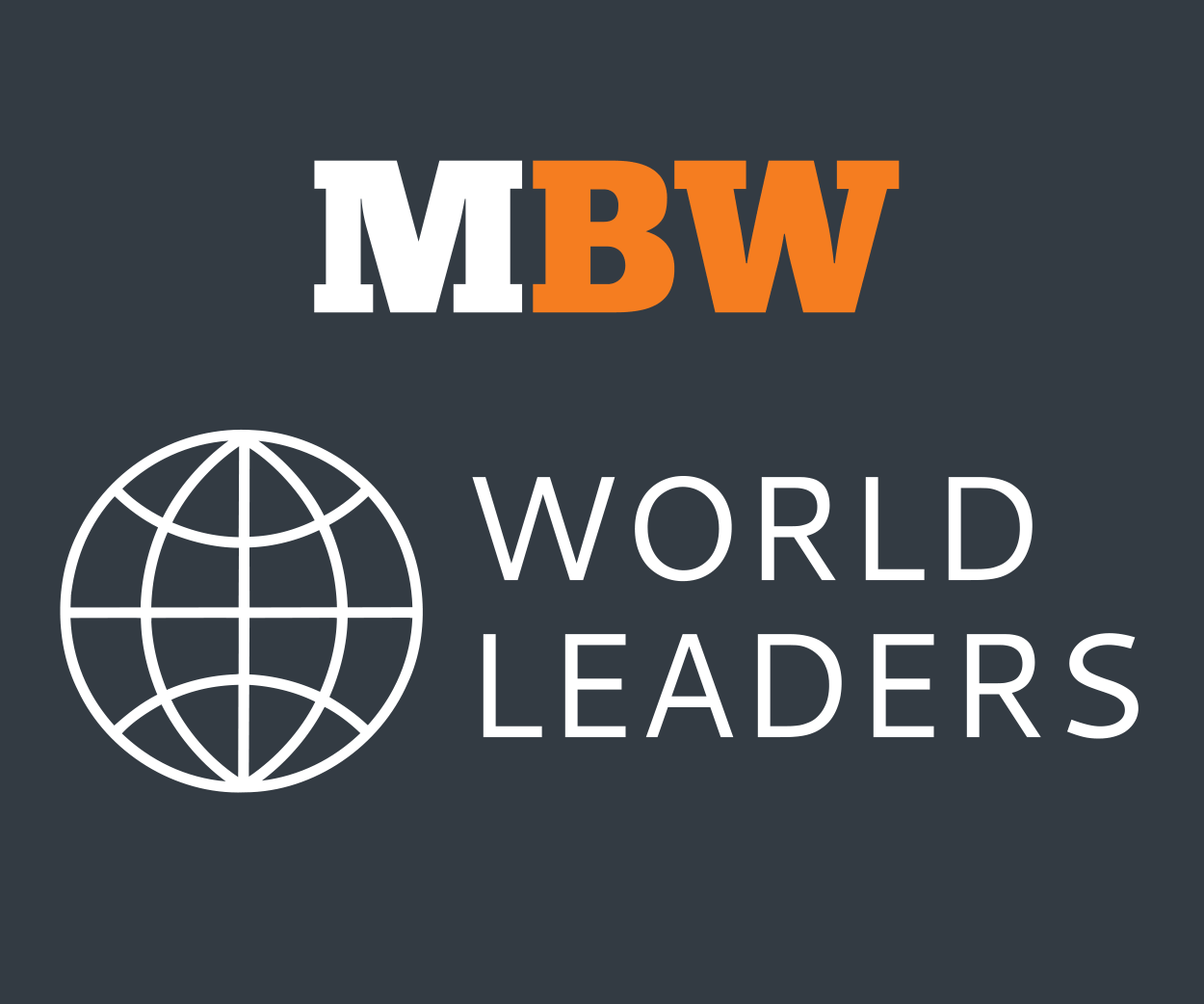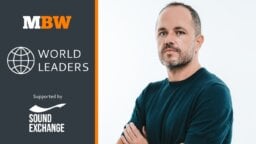MBW’s World Leaders is a regular series in which we turn the spotlight towards some of the most influential industry figures outside the US and UK markets. In this feature, we speak to Marie-Anne Robert, Managing Director of Sony Music Entertainment France. World Leaders is supported by PPL.

France generated nearly $900 million in recorded music revenues in 2020.
And at the same time as being the world’s fifth biggest recorded music market (as per IFPI data), 80% of France’s Top 200 streaming acts are local artists.
Commenting on that latter stat, Marie-Anne Robert, Managing Director of Sony Music France, tells MBW that “France is a very dynamic market”.
Robert, who joined the firm in September 2021, adds that, as the major’s new MD for the market, she wants “to seize that opportunity to ramp up our local signings and build a strong A&R network around us”.
Robert brought over 20 years of international music, digital and marketing industry experience to the Sony Music France MD role, with half that time spent at Tunecore parent Believe, most recently as General Manager of Marketing & Artist Services.
Commenting on her decision to join a major record company, Robert says that “I was attracted by Sony Music’s vision.”
Amongst the Sony initiatives cited by Robert as being especially attractive, are the company’s Artists Forward program, which, announced in June last year, comprises SME’s landmark Legacy Unrecouped Balance Program.
Robert says that she was also interested in “Sony Music’s vision beyond music” and particularly the cross company collaborative projects within the wider Sony Corporation.
“I see fantastic opportunities here in France to build on the work already underway by the company to forge partnerships with other verticals to develop our artists, such as video games, pictures, fitness, podcasts and much more,” explains Robert.
“The company is in a unique position to make this a success for artists in a credible an authentic way, thanks to the diversity of entertainment companies inside Sony Corporation.”
Now, as Managing Director of the company in France, and reporting to Daniel Lieberberg, SME’s President of Continental Europe and Africa, Robert will oversee all operations, signings and acquisitions in the market, and is tasked with accelerating the French company’s digital transformation.
Here, Robert tells MBW about her objectives in the new role, challenges for artists in France and the role that Artificial Intelligence and Machine Learning will have in the music business of the future…
Your remit includes overseeing all operations, signings and acquisitions. Tell us about some of your objectives for 2022?
I want to seize that opportunity to ramp up our local signings and build a strong A&R network around us. I also plan to strengthen creative and digital marketing services, to better support artists in their development and reach, bringing them to much wider audiences.
After two years with no local leadership and my team having to work from home due to COVID restrictions, I’m keen to ensure our team feel they are one team and that we are always challenging ourselves about what innovative services we must develop in the next five years to best serve our artists.
The announcement about your role also states that you will accelerate the company’s digital transformation. Tell us about some of the biggest opportunities for digital growth that you’re seeing currently and how Sony Music plans to capitalise on them?
I see two major opportunities for digital growth: the first is in the switch from an album culture to a track culture. I think the pandemic has helped accelerate that switch, as artists in France felt the need to engage on a much frequent basis with their fans.
Some markets, such as India and Mexico, are already much further ahead than France, where it’s still 30% physical, with traditional media attached to album formats.
So, our aim is to help get the market there in just two years, which give us a great opportunity to plan, invest and adapt our operations for that change, whether that’s new contract format, new marketing investments strategies or more.
“We are thinking more longer term when developing our legacy artists.”
Another strong opportunity is leveraging our catalog consumption. We are thinking more longer term when developing our legacy artists, and learning to be more persistent, as revenue is no longer done in the first three weeks as it was in the physical era. There is huge opportunity to increase catalog revenue for us and our artists.
And at Sony Music France, we are very lucky to have such an incredible catalog, with artists like JJ Goldmann, Indochine, Cabrel, Voulzy, NTM and much more.
What are the biggest challenges in the digital space (for artists and labels) currently and how do you foresee Sony Music overcoming these challenges?
Once you have the music to bring to consumers, clearly the biggest challenge for artists is how to cut through the noise and reach listeners, when platforms like Spotify see roughly 60,000-70,000 tracks uploaded every day.
“Whilst in the digital era there are a lot of choices out there for artists, those who want to find global success, innovate and diversify their earning opportunities and fan engagement, welcome the support and investment from record companies now more than ever.”
Partnering with distributors is a first step to get music released, but what’s really needed today is to emerge from that mass. Sony Music France is uniquely placed to help artists cut through and find success, thanks to a unique mix of data analytics teams who understand how the store algorithms work, creative teams who create appealing content to engage with fans, and marketing teams who know how to best develop your audience and sister companies that can help you go beyond music, with brand, high tech, video games partnerships.
Whilst in the digital era there are a lot of choices out there for artists, those who want to find global success, innovate and diversify their earning opportunities and fan engagement, welcome the support and investment from record companies now more than ever.
What are the biggest challenges generally in France for artists and labels today?
Due to the Covid pandemic, I would say that the biggest challenge right now for our French artists is the need for confidence, continuity and stability to be able to perform live and tour.
It’s been a huge challenge for our artists, and we’ve worked hard to ensure they get any support and assistance needed during the pandemic, whether through our global COVID fund or through providing new and alternative opportunities for them to engage with fans.
According to SNEP, the recorded music market in France generated €781 million in 2020, representing annual growth of 0.1% in the pandemic year. What are your predictions for how the market performed in 2021?
We should see significantly more market growth in 2021 versus 2020, thanks to the post-covid recovery. Like in many other markets, we saw an impressive increase in vinyl sales and direct-to-consumer consumption. Digital consumption grew slower in 2021, mainly due to less advertising revenue caused by the pandemic.
What genre-based trends are you currently seeing / do you predict in France’s music industry in 2022?
We are likely to see stable growth for hip-hop this year, which is by far the number one genre in France. Interestingly, we are seeing more and more diversity in that genre, with amazing local creativity in drill or trap for instance, from artists such as Gazo and Chily.
You have a lot of experience in the independent sector, particularly at Believe and TuneCore. What can the major labels learn from the DIY/independent artist sector?
The ‘indie versus major’ notion is outdated in the digital age. On one side, companies like them are becoming more and more competitive in the services they offer to artists.
On the other hand, we are innovating in our deal structure to be more flexible and align even further with artists’ needs. What matters in my opinion is flexibility, transparency and adaptation to artists needs.
Giving artists more and more choice so they can take a path that best supports their requirements. It’s great to see that the industry globally has been moving this way for quite some time now.
What technological development or otherwise do you think will have the biggest impact on the global industry in years to come?
Artificial Intelligence and Machine Learning could play a major role in the upcoming years – from better understanding our data and helping decision making; to assisting our creators with innovative tools in music production, visual production, or lyric assistance.
We are collaborating with the Sony CSL research laboratory based in Paris on developments in this space, and it’s absolutely thrilling.
They have a team of music researchers dedicated to understanding – with the help of Sony Music artists – how AI can benefit modern creators by inventing the next generation of “smart” studio companions and new A.I instruments. One of our artists, Uele Lamore already released an EP with Sony CSL, leveraging AI, and we plan to develop more collaborations in the near future.
What would you change about the music industry and why?
I would encourage the industry to take on a much stronger learning culture, as I feel there are some parts of the industry that still suffering from an old school approach, compared to some other industries which progress faster thanks to a more professional and systematic approach.
Don’t get me wrong: we are not selling yogurts and we need to keep a unique approach to artist development. However, our jobs are becoming more and more technical on one side with digital supply chains, algorithms, audience retargeting, NFTs and so on; and more creative on the other side with the need of increase storytelling to differentiate our artists from the other ones. So, a willingness to learn and adapt to ensure we’re always innovating and creating on behalf of our artists is crucial for the industry.
“I would encourage the industry to take on a much stronger learning culture, as I feel there are some parts of the industry that still suffering from an old school approach, compared to some other industries which progress faster thanks to a more professional and systematic approach.”
We’re already working on this as a business globally, with our Sony Music Employee Learning and Development programs which focus on professional training, coaching, mentorship and hands-on experiences
But it’s also about building a new pipeline of diverse talent form diverse backgrounds with diverse thinking. A great example is our Sony Music A&R Academy in France, which first launched four years ago, to recruit the next generation of A&R executives. Sony Music France ran a short A&R video campaign giving people a glimpse into the life of an A&R and encouraged people all across the country to apply for a position by submitting a video expressing their passion for music. In just three months, we received tens of thousands video applications from an incredibly diverse pool of candidates.
The shortlisted candidates were invited to spend time in Berlin, London, and New York, where they had interviews with our A&R leaders and joined music listening sessions to analyse the work of some artists.
Other divisions within Sony Music have also now taken up this new approach to recruiting and we are now working on a similar campaign in partnership with Sony PlayStation, aimed at finding talent within the gaming, cinematic, and music communities.






